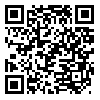BibTeX | RIS | EndNote | Medlars | ProCite | Reference Manager | RefWorks
Send citation to:
URL: http://tumj.tums.ac.ir/article-1-959-en.html
Background: Injection drug use (IDU) in Iran is not rare and is one of the main factors in opioid overdose. The objective of this study was the qualitative assessment of overdose, related factors, and available interventions.
Methods: A qualitative method was employed. Six districts of Tehran with a population of 400,000 inhabitants were selected. The districts were different in socioeconomic characteristics, urban structures and prevalence of IDU and crime. A total of 81 key informants from different sectors and 154 injection drug users (IDUs) were selected by purposeful, opportunistic and snowball sampling, and interviewed individually or in groups. Ethnographic observations were done for studying the life situation of IDUs.
Results: In one district no cases of IDU were found. In other districts, overdose in IDUs was reported to be common. Heroin injection alone or in combination with other drugs was the main reported cause of overdose. Reportedly, wrong estimation of drug purity was the most important reason. Even in the districts with highest rate of IDU and overdose, most clinics and hospitals did not have enough facilities necessary for management of acute opioid overdose.
Conclusion: According to the high prevalence of overdose, provision of preventive education of drug users and their relatives and availability and accessibility of emergency services is highly recommended.
| Rights and permissions | |
 |
This work is licensed under a Creative Commons Attribution-NonCommercial 4.0 International License. |





